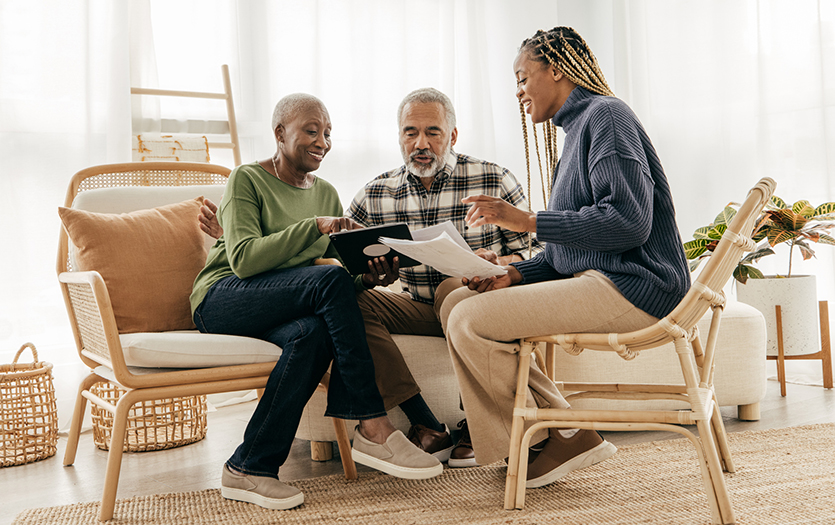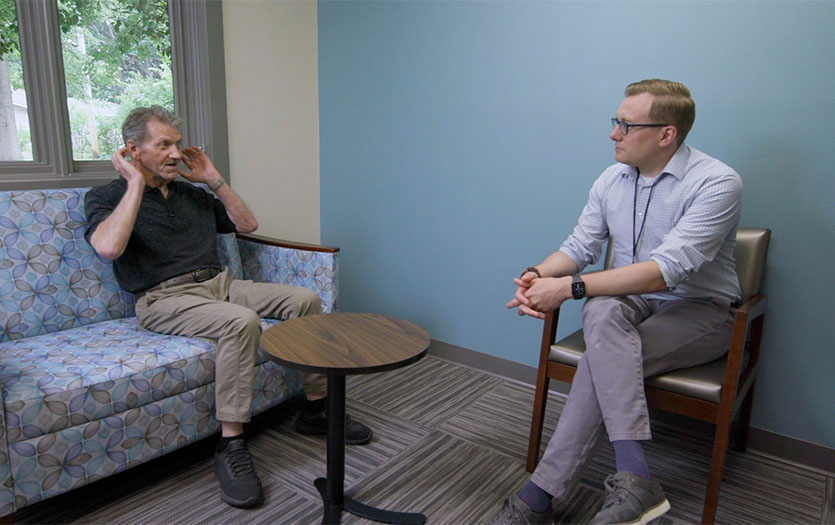
The following is based on content from the book, “Out of Touch: How to survive an intimacy famine” written by Michelle Drouin, PhD, research scientist, Parkview Mirro Center for Research and Innovation. Michelle is a published author with expertise in psychology, information technology, communication and medicine. Here, she shares some guidance for forming and maintaining friendships.
The American Psychological Association shared that, people who have friends and close confidants are more satisfied with their lives and less likely to suffer from depression. They’re also less likely to die from all causes, including heart problems and a range of chronic diseases. But the truth is, even as adults, making new and connecting with existing friends can be difficult. Here are a handful of things to keep in mind as you consider the rewards of socialization and relationships.
A brief guide to gaining and maintaining friendship
Secret to friendship No. 1 – No excuses
Samuel Clemens (Mark Twain) and Nikola Tesla forged and maintained a friendship in the early 1900s, while living on different continents and without the aid of transatlantic flights. You have absolutely no excuse for not keeping in touch with your friends. If there is no reciprocity or they don’t inspire you, find new ones. But if you already have friends, and they are of even minimal value to you, make the effort to sustain these important relationships. It took at least five days for Clemens to cross the Atlantic to visit Tesla. You can take 20 minutes to call your best friend.
Secret to friendship No. 2 – Find your people
Drift naturally to those to whom you are biologically drawn. Find them in coffee shops, or at concerts, sporting events, or parties. You can even find them online. You choose your environment. Trust your instincts about where to wander, and while there, look for your soul mates.
Secret to friendship No. 3 – Talk to strangers
Overcome your reluctance to engage people you don’t know. Connect with them during commutes or solo adventures. Ask them an interesting question like, “How would your best friends describe you?” Minimally, you may have a pleasant experience and learn something about one of our world’s beautiful humans. Perhaps you enrich their day. But in the best case, you forge a meaningful and enriching connection that opens your mind and heart.
Secret to friendship No. 4 – Don’t be Tom Hanks
Social isolation is bad for humans. We are built to be social beings. Think about Tom Hanks’s character in the movie Castaway. He was so socially starved, he started talking to a volleyball. Even the robots in the movie iRobot huddled together in their metal storage bins. Sure, these are the musings of Hollywood writers, but they are reflective of basic human needs. Find connection wherever you can, and if that happens to be online, go for it. Just also make sure that you are balancing your life with other activities that help elevate your mood such as exercise.
Secret to friendship No.5 – Think of friends like money
I’m not sure anyone needs additional incentive for developing friendships, but having friends, aside from building your social capital, is actually good for your brain. Spending time with friends can have a similar positive effect on the brain as chocolate or ice cream, but unlike these tasty treats, friends are calorie-free. One way to strengthen your brain’s positive reactions to friends is to aim to pair friendly outings with other types of rewarding experiences like exercising and dining out. Eventually, the familiar can bring as much pleasure as the novel.
Secret to friendship No.6 – Be the light for others
There are people in this world who are lonely. Truly and deeply lonely. We can no longer ignore their suffering. Dismiss your false assumptions about what they did wrong to end up in a place without social ties and offer them your sympathy and support. In the two years before my grandmother died, I called her almost every time I commuted to work. She was blind, in a wheelchair, and spent the last of her days on this earth in a care facility where the managers once tried to pawn off construction paper snowmen building as a group leisure activity. Sometimes I caught her. Sometimes I didn’t. But I will never regret how I spent that time. Use your cell phone to connect. Call your grandma.
Bonus friendship tip!
Every time you’re waiting in a line or commuting, consider sending a text or voice message to a few friends. Tell them you’re thinking of them. Mention what you cherish about them. Ask them about their lives. It might help you maintain connections and deepen relationships, but it also might help you maintain a healthy life balance, where your consumption matches your output. Activities like reading, watching television, and listening to music are consumption, while activities such as exercise, making meals, and sending messages are output. Be intentional about seeking balance.


